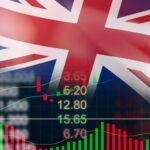Is It Time To Buy European Stocks?
Investor sentiment on European equities these days is not exactly bullish. Just today, the Financial Times reports ‘German factory output drops as economic gloom deepens‘ (Sep 6).
But despite the negative macro headlines, not all European stocks are falling. In fact, some are still performing strongly. Do not confuse economic trends and stock markets movements. The two can move independently for a time period.
In this guide, I will show you five European stocks that can earn good returns in the coming months. These companies operates globally, thus offering stability in revenue growth. Some of these stocks are considered ‘recession proof’ because their products sell even during economic downturns.
Moreover, these stocks pay dividends. Compare that to many European sovereign bonds which offer negative interest rates. With dividends you can still grow your portfolio over time. With sub-zero rates, you’re certainly holding a shrinking portfolio.
Another point worth noting is this: the European Central Bank is under pressure to reflate the Eurozone economy. Monetary easing often leads to higher stock prices. The incoming ECB president will be under a lot of pressure to turn on the spigot if Germany slips into a recession. Start now to prepare for this monetary trend.
One other thing to consider is if Sterling will be worth more that Euros in the future and you may lose out on currency exposure. If this is a concern check out our analysis of expert Pound to Euro forecasts here.
Here is how to buy shares in any company from any international stock market.
Here are five European Stocks it could be worth buying now
- LVMH Moet Hennessy Louis Vuitton (MC)
- Novo Nordisk (NOVOB/NVB in US)
- Unilever NV (ULVR UK)
- Kone Oyj (KNEBV)
- Essity (ESSITY A)
LVMH Moet Hennessy Louis Vuitton (MC)
LVMH is the world’s uber-luxury company. The firm holds a diverse portfolio of high-end brands including Louis Vuitton, Christian Dior, Marc Jacobs, Bvlgari, Hennessy, and Moet & Chandon. It sells across 70 countries. Recently, LVMH’s major shareholder – Bernard Arnault – was ranked third on the Forbes’ Global Rich List, with a fortune exceeding $100 billion.
It is easy to see why. LVMH’s stock price had tripled during the last three years. Insatiable demand for its luxury products powered LVMH’s sales and earnings over the past five years. Demand from Asia appears to remain strong in 2019, despite the widening trade war between China and US. Stability in revenue growth, operating margin and shareholder returns mean investors are continuing to hold the stock, with a view of increasing positions on corrections.
Technically, LVMH’s stock remains on a powerful long-term uptrend (see below).
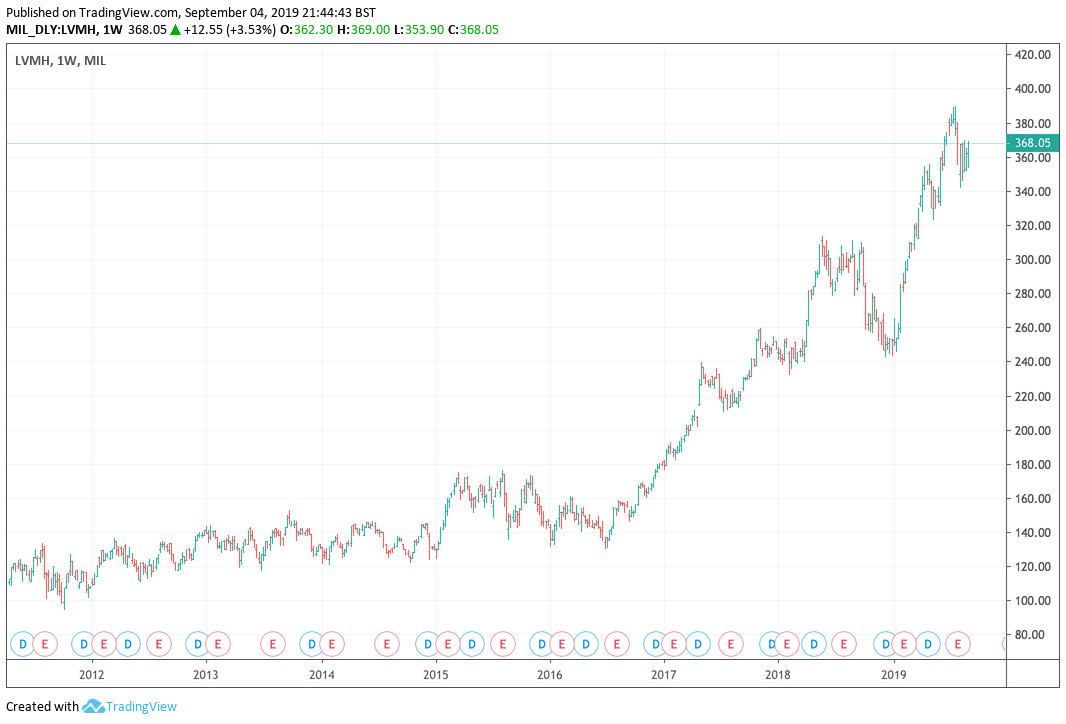
Novo Nordisk (NOVOB/NVB in US)
Novo Nordisk is a major pharmaceutical company based in Denmark. Its annual revenue exceeds DKK 110 billion (US$16 billion, 2018) and is a highly profitable health company. Its products treats diabetes and sell across 70 countries. Just recently, the company announced a 10% rise in its second quarter operating profits, which sent its share to new long-term highs. Pharmaceuticals stocks are often ‘recession proof’ – simply because consumers still need healthcare products in good and bad times.
Looking at Novo’s long-term price chart, it is not hard to see that prices are climbing out of a multi-year base. The breakout at 350 is a clear signal that supply is exhausted and that prices are ready to test the 400 major resistance.
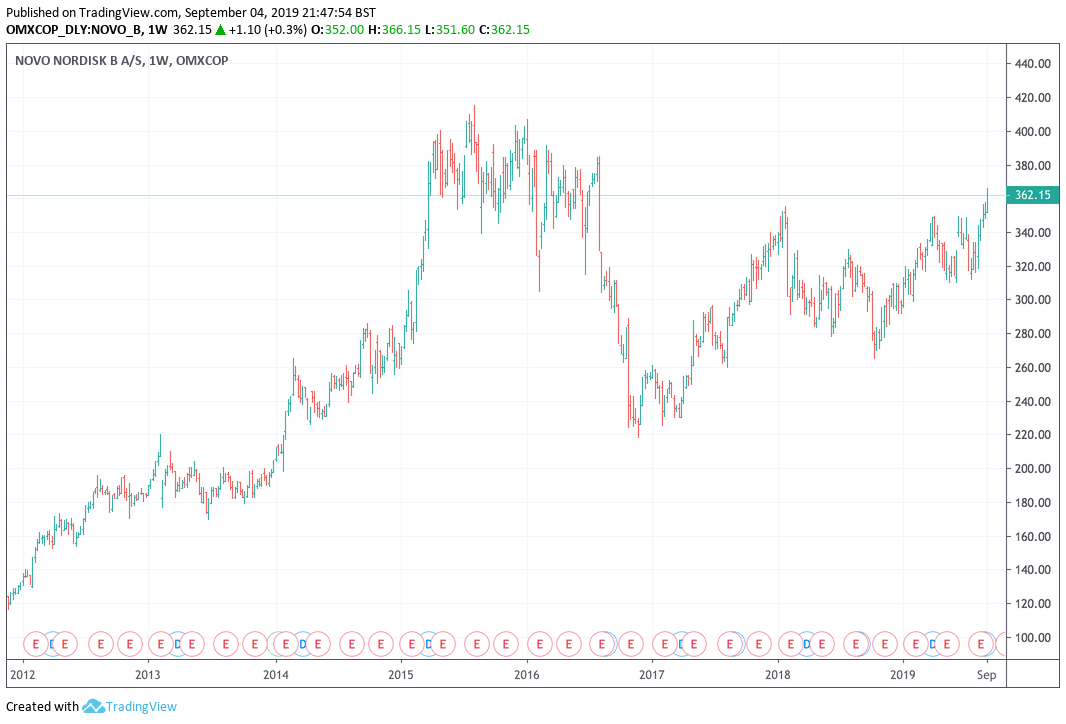
Unilever NV (ULVR UK)
Unilever is a British-Dutch firm and one of the world’s largest consumer product companies. This firm produces, markets, and sells a wide range of food, home and personal care products. Some of Unilever’s leading brands include Dove, Lipton, Magnum, Omo and Rama. Investors like this stock tremendously because it is viewed as a high-quality defensive stock. Its products are sold in both developed and emerging economies – giving it the best of both worlds: Stable income and good growth.
A quick look at its chart (Euro) shows Unilever’s shareholders were amply rewarded over the past five years. Each extended consolidation was followed by another rally. At this rate of growth, reaching 60 should not be too difficult.
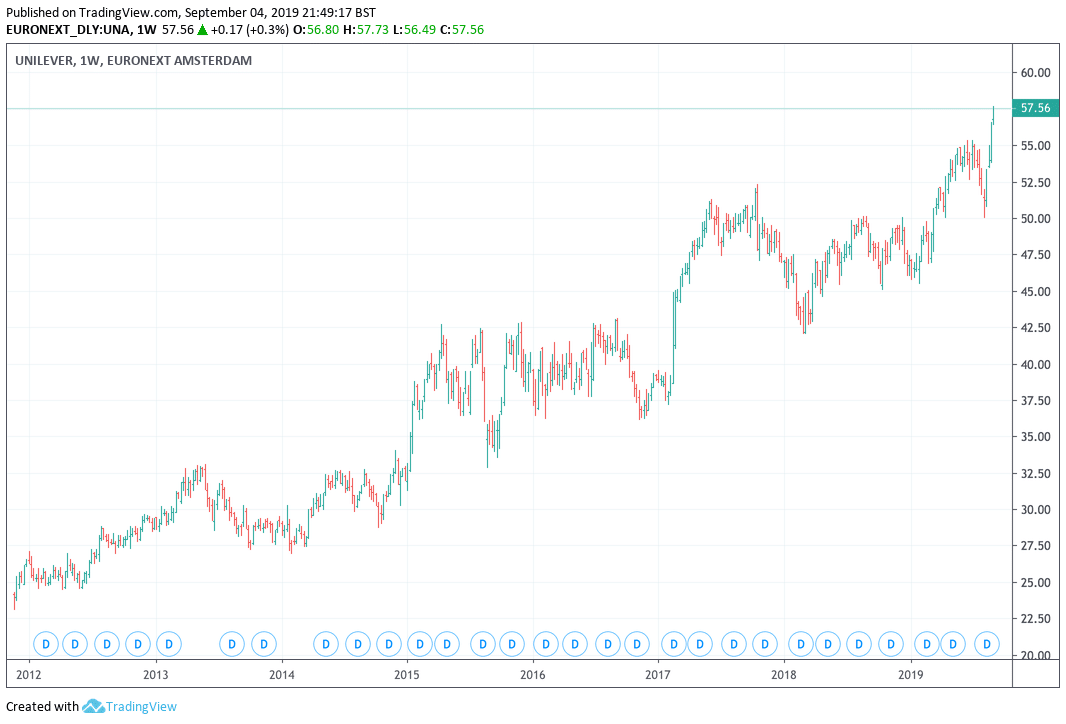
Kone Oyj (KNEBV)
‘Kone’, in Finnish, means machine or device, which literally tells you what this firm does: Engineering. You may even have seen its name on elevators or escalators. While Kone’s annual sales is only 9 billion (Euro), Kone’s products are sold in more than 50 countries, from Singapore to Spain to Canada. The diverse nature of its earnings is an attractive point.
Looking at its chart, it is clear that investors like Kone, too. The stock does exhibit some choppiness, but prices rarely regressed significantly. No prolonged bear trends means lower price volatility, which is good for portfolios. The recent advance into new highs suggests continuing investor accumulation.
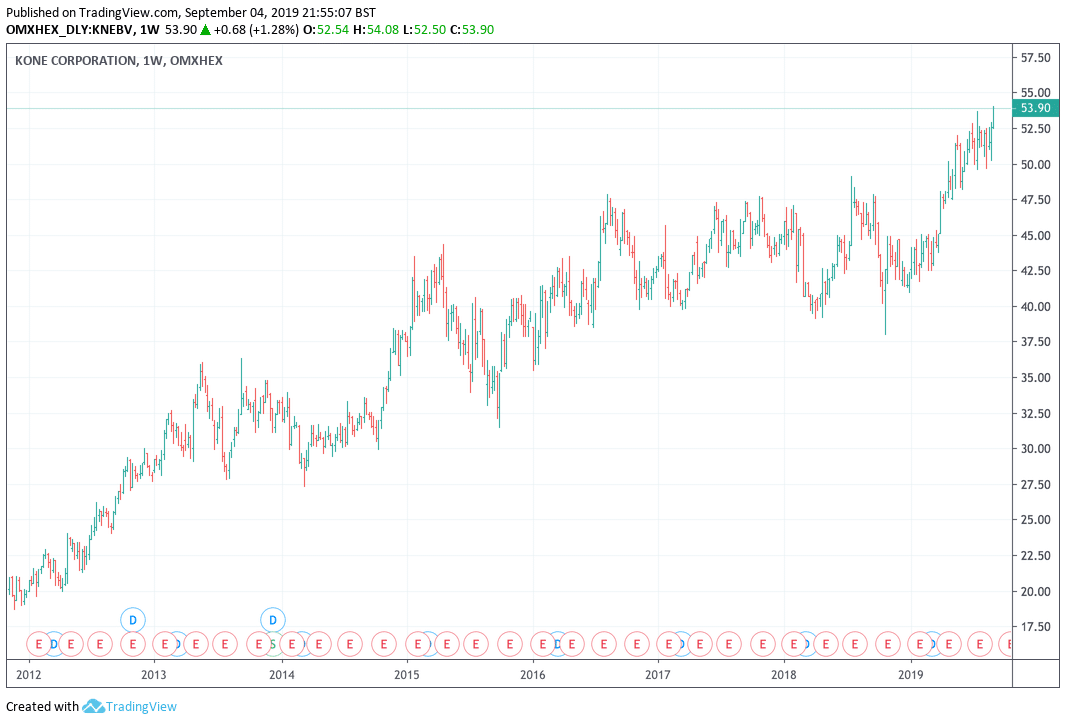
Essity (ESSITY A)
The last spot on the list is the Swedish firm, Essity. The firm derives its name from ‘Essential’ and Necessity’. For many customers, Essity’s products are indeed indispensable. The firm operates across three major product segments, personal care, consumer tissue and professional hygiene. Its annual sales in 2018 was 118.5 billion (SKro, about US$12 billion) and earned about 10.5 billion (Skro). Sales geography is approximately 150 countries; Asia is Essity’s biggest region by revenue. So it is a highly diverse and profitable consumer company.
This stock is relatively new. It was listed on Nasdaq Stockholm on June 15, 2017. While prices did trend lower for about 15 months after its listing, this bear trend reversed abruptly earlier this year. Prices gained about 50% in 2019 following the breakaway gap at 230. Translation: Investors ‘suddenly’ discovered the attractiveness of Essity’s business model. New price highs can last for some time, especially after prices just cleared the 300 key level.
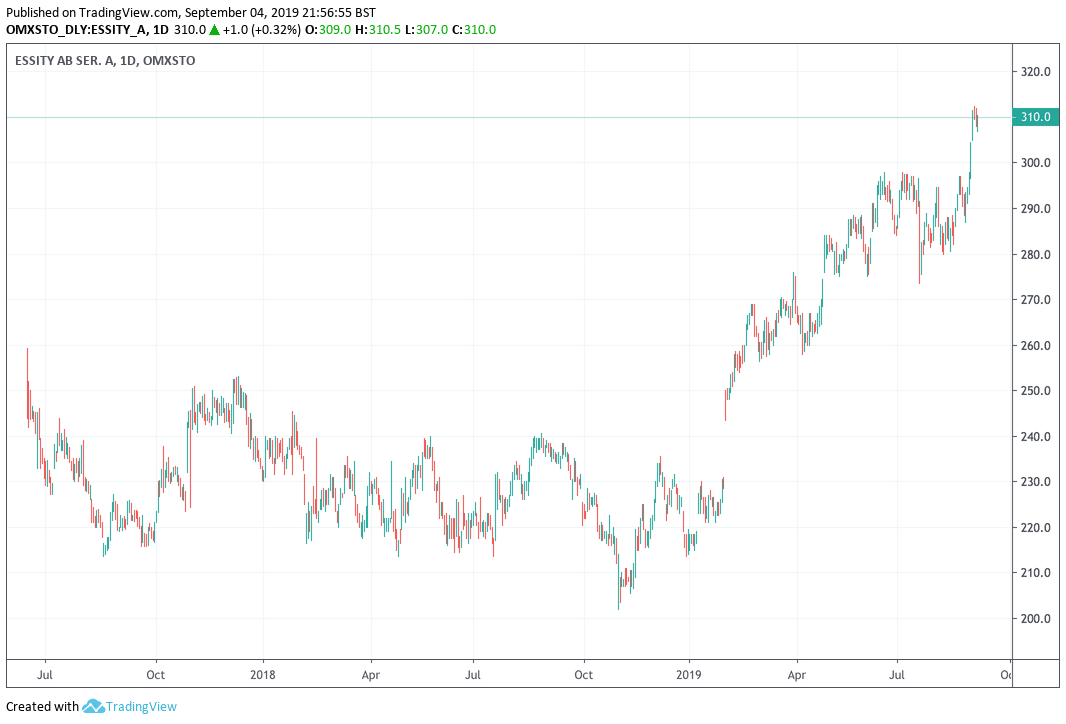

Jackson is a core part of the editorial team at GoodMoneyGuide.com.
With over 15 years industry experience as a financial analyst, he brings a wealth of knowledge and expertise to our content and readers.
Previously Jackson was the director of Stockcube Research as Head of Investors Intelligence. This pivotal role involved providing market timing advice and research to some of the world’s largest institutions and hedge funds.
Jackson brings a huge amount of expertise in areas as diverse as global macroeconomic investment strategy, statistical backtesting, asset allocation, and cross-asset research.
Jackson has a PhD in Finance from Durham University and has authored nearly 200 articles for GoodMoneyGuide.com.

